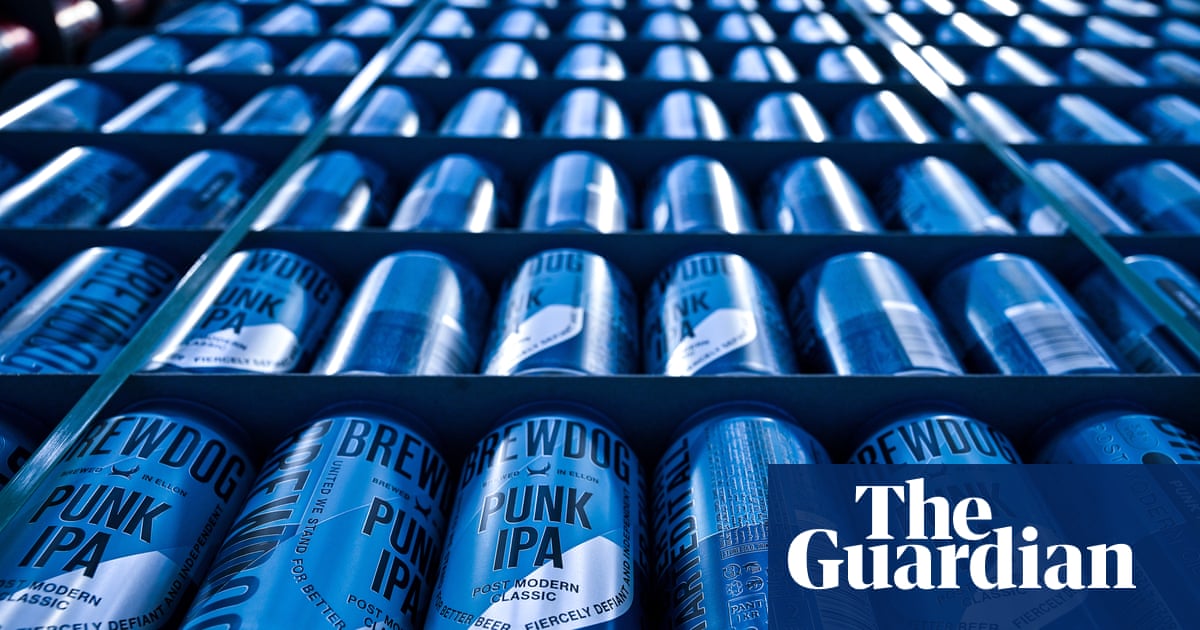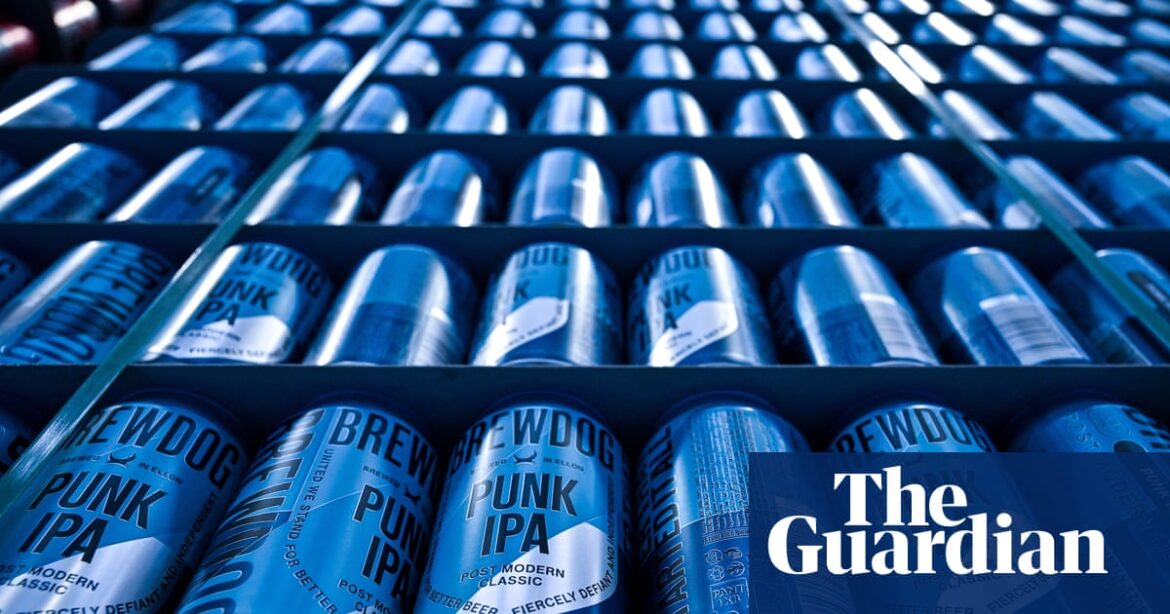
The new boss of BrewDog has promised its “punk” shareholders a return to profit, after delayed accounts revealed losses doubled in the final year under the stewardship of the beer company’s co-founder, James Watt.
BrewDog, which is based in Aberdeenshire, Scotland, apologised to investors for releasing its annual results late, in an announcement that coincided with Watt firing a broadside at the government over its plans for this month’s budget.
The brewery entrepreneur, who is believed to be worth more than £250m, lashed out at Labour amid reports the chancellor, Rachel Reeves, intended to raise capital gains tax (CGT) and reclassify debt to allow more spending on public services.
Watt’s critique came as the beer and bars company finally published accounts, having delayed their publication for nearly four months.
While revenues grew, from £321m to £355m, costs increased more rapidly and the company also had to write-down the value of underperforming bars.
The result was that pre-tax losses jumped from £30m to £59.2m in the year to the end of 2023, potentially complicating BrewDog’s long-held ambition of floating on the stock market.
James Arrow, who took over as chief executive after Watt announced his departure in May, said: “As I have set out before, a key aim is to return BrewDog towards profitability and we have taken significant steps towards that goal.”
He said the company had returned to profit on an underlying basis during the first half of 2024, helped by a 10% increase in sales in the grocery market.
“The teams have pushed hard to deliver these results and have enabled us to be in a very strong position to now rapidly grow profitability and deliver on the remarkable potential of this great brand,” Arrow added.
Watt handed over to Arrow after presiding over a phenomenal period of growth, punctuated by controversies related to his behaviour and the company culture.
He has since launched a new venture called Social Tip, which allows users to become mini-influencers who earn commission by promoting brands online.
On Tuesday, Watt published a typically outspoken open letter to Reeves and Keir Starmer, railing against plans to raise CGT and to reclassify how Britain’s national debt is calculated.
Watt, who could make a significant taxable profit if BrewDog goes ahead with plans to float on the stock market, said increasing CGT would “destroy entrepreneurial spirit in the UK”.
“Most of the brilliant business minds that I know […] will simply leave the UK to build businesses and create jobs elsewhere,” he said. “Increasing capital gains tax will do far more damage to our economy than any gains we may experience from increasing this tax.”
after newsletter promotion
Sources close to Watt said his view on CGT was not related to his own financial circumstances and pointed out that he and his companies had contributed about £500m to the exchequer over the past decade.
He also hit out at proposals to reclassify borrowing to fund investment in projects expected to deliver a long-term economic benefit, such as roads, school and hospitals.
Watt, who attended the Reform leader Nigel Farage’s 60th birthday party in April, said ministers were motivated by a desire to avoid “unpopular austerity” and by doing so would only store up greater problems for the future.
In 2021, Watt was accused by former workers of presiding over a “culture of fear” within the business, with “toxic attitudes” towards junior staff. He apologised to staff and has said the group had made changes.
In December 2022, the group lost its B Corp status, awarded to companies that follow ethical principles.
In January, the company faced a backlash after revealing it would no longer hire new staff on the “real” living wage and would instead pay the lower legal minimum wage.
Source: theguardian.com



